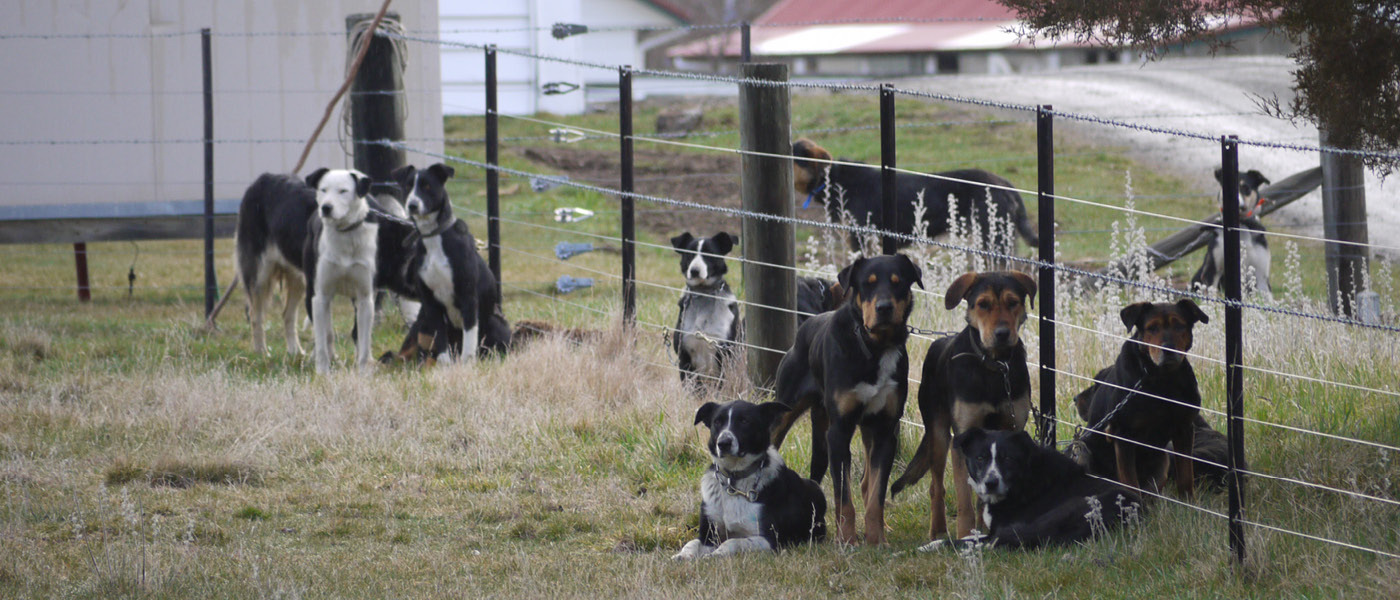
With events, summer activities and domestic travel in full swing across New Zealand, we are currently experiencing an epidemic of canine cough, also known as ‘kennel cough’. This may occur frequently in New Zealand and is caused by disease agents that are commonly present in the country (ie it is not an exotic disease agent).
The name kennel cough is misleading – it is not just a disease of dogs visiting boarding kennels. There is risk of infectious canine cough for working dogs living on farm, especially when dog teams from outside the area are brought in to help at busy times of the year. It is very contagious and can lay low in whole teams of dogs for a week or two. Canine cough affects the trachea (windpipe) and in severe cases can cause pneumonia and occasionally death. The main symptom is a harsh persistent cough often accompanied by a fever and lack of energy. It is spread via droplets in the air and is easily passed between dogs in the same air space whether working together, kenneled, or chained near each other and, of particular significance to our rural communities, at dog trials.
Canine cough vaccination is administered alongside your working dogs’ core DHPPi vaccinations (distemper/hepatitis/ parvovirus/parainfluenza virus) we advise core vaccinations to be given every two to three years once the primary puppy course and yearly booster have been completed. The canine cough vaccination will then be administered every 12 months.
In the recent TeamMate study looking at a population of South Island working dogs, only 24% of dogs were vaccinated as adults, from yearly to sporadically, although another 45% were known to have been vaccinated as a puppy. In comparison, a North Island study reported that 53% of dogs were vaccinated annually or every 2 years. TeamMate did not record the nature of the vaccines administered, though it is assumed the majority of vaccinations covered the core viral pathogens (distemper, adenovirus-2, parvovirus, parainfluenza).
This data shows us that there is a large proportion of New Zealand working dogs insufficiently immunised against the canine cough complex. Effective vaccination does reduce the severity of canine cough and remains an important cornerstone in managing the disease. While Vetlife acknowledge vaccination is an important part of your dogs’ health care plan, not all of the agents that cause canine cough are included in the available vaccines.
So, with dog trialing events set to take place across the country until May 2021, get on the front foot and ensure your dogs have had their canine cough vaccination. If dogs are ill with an infectious disease, they will be barred from competing in trial events. We acknowledge remote locations and large teams of dogs can make it difficult to keep up with these vaccinations, but your local Vetlife team are available to travel direct to your farm to perform a thorough health check and administer whatever vaccinations are required.
Lauren Gliddon BAnSci, LVN
Vetlife